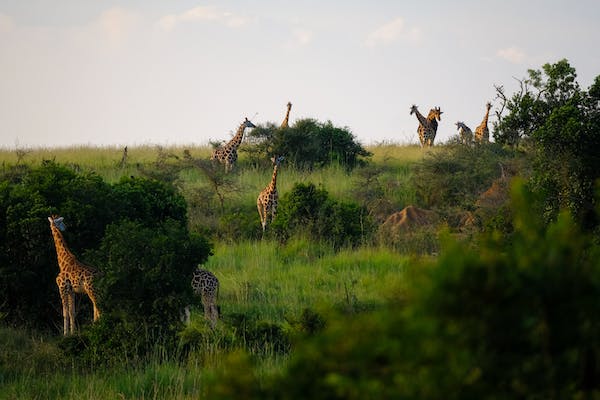Obviously, there is a certain degree of danger when you are in the bush with wild animals. Do not venture out on your own and always ensure that you are in the company of a guide. · If you must venture outside your room at night, ask your guide for an escort.
Listen to your guide’s advice. They are trained to cope with dangerous situations and have the bush knowledge and sense to look after you.
It is an offence to interfere with a guide in their line of duty and disregarding their safety instructions. You will not only endanger yourself, you will compromise the safety of the other participants as well.
Accidents are infrequent and the camps have excellent safety records.
If you are not briefed about the safety drill in the respective camp please insist that someone fills you in.
Nothing is guaranteed in the wild, provided you use common sense and abide by the general rules, you should be perfectly safe. Never sleep outside.
Wildlife is more familiar with people and less intimidated by your presence at view points, hides and camps. Dangerous animals pose an immanent threat at all times no matter where you are.
Never tease or corner wild animals, this may cause an unpredictable response and a potentially dangerous reaction.
Feeding of animals habituates them, causing them to eventually lose their fear of humans. Animals become a nuisance and danger to people prompting the authorities to destroy them.
Never stand up or protrude anything out of the game drive vehicle, this will cause an unnatural response from the animals, who have been habituated to the presence of the vehicle, who view it as a neutral element in their territory.
Apart from frightening the general wildlife, dangerous animals will focus on the transgressor and may become provoked to attack.
When you approach big game, do it with caution and keep movement and noise to a minimum. If an animal shows signs of distress or hostility keep clear of its line of retreat and determine the best way to avoid a confrontation.
Always advance towards animals from downwind. They would otherwise become alerted to your presence, and given that they have an acute sense of smell, you will be detected.
Animals can be terrifyingly deceptive and may appear to be harmless and passive; this can change in an instant if they spring into lethal life.
Do not under estimate the mobility of hippo and crocodile.
Be alert on game drives at all times, it is important to anticipate abrupt stops if a dangerous animal suddenly appears and blocks your route or avoid thorn branches along the game drive route.
Although the region has a fair share of venomous snakes, spiders, scorpions and stinging insects, but surprisingly few safari goers suffer from serious attacks.
The confines of camps and lodges are usually free of risk but people undertaking walking and mobile safaris should be rather more wary.
Be aware of the risk of malaria and be responsible by taking precautions to avoid it.
SOUTHERN AFRICAN BIRDS | SOUTH AFRICAN BIRDS | BOTSWANA BIRDS | NAMIBIAN BIRDS | ZIMBABWE BIRDS | ZAMBIAN BIRDS
